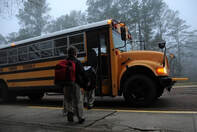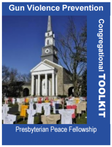|
|

ELCA Advocacy - Connecting faith and public life
Through faithful advocacy, the ELCA lives out our Lutheran belief that governments can help advance the common good. ELCA advocacy works for change in public policy based on the experience of Lutheran ministries, programs and projects around the world and in communities across the United States. |
|
Talking with Kids After the Attack on the U.S.Capitol: From "Beyond the Stoplight" comes a well thought out engagement for conversing well with kids after traumatic experiences. 
THE SANDBOX REVOLUTION: Raising Kids for a Just World. -calls upon our collective wisdom to wrestle with the questions, navigate the challenges, offer concrete practices, and remind parents of the sacredness of the work. Written by parents who are also writers, pastors, teachers, organizers, artists, gardeners, and activists, this anthology offers a diversity of voices and experiences on topics that include education, money, anti-racism, resistance, spirituality, disability justice, and earth care .”The STUDY GUIDE has questions and activities for group or individual reflection.
Right to Be - We hold space for you and anyone who wants to join in building a world free of harassment and filled with humanity. We offer you tools to take action and respond to harassment. We provide you with resources to heal, build resilience, and step into your power. Some people find showing support for others can be healing and here you have a space to do that too. Sharing your story also supports healing and can increase your likelihood and others’ likelihood of taking action.
Everyone Can Help – Don’t Be a Bystander There are five steps to helping when witness to a problematic or potentially problematic situation: 1. Notice the Event: People are busy, distracted, on their phones, talking, texting, not aware of their surroundings – some don’t want to notice. Pay attention to what is going on around you. 2. Interpret It as a Problem: Sometimes it is hard to tell if someone is in need of help. Error on the side of caution and investigate. Don’t be sidetracked by ambiguity, conformity or peer pressure. 3. Assume Personal Responsibility: If not you, then who? Do not assume someone else will do something. Have the courage and confidence to BE THE FIRST! 4. Know How to Help: NEVER put yourself in harm’s way but DO SOMETHING! Help can be direct or indirect. 5. Implement the Help - Act! If not you, then who? Research shows that if you are alone you will help 80% of the time but if you are in a group you will help only 20% of the time because of the diffusion of responsibility-you think someone else will do something. When you notice something going on, DO SOMETHING! ********************************************* Strategies for Doing Something Involve Myself: DIRECTLY address the situation. Step in and say or do something to stop the situation. · For example, if someone is trying to take an intoxicated student to a room, you can directly intervene by taking the person aside and saying, “Hey man, she looks drunk. I do not think that’s a good idea.” Interrupt the Situation: DISTRACT. Find a way to redirect the attention of those behaving inappropriately toward something else; making a simple (or elaborate) distraction to diffuse the situation. · For example, if a couple is arguing and things are getting heated, you can call one of the person’s cellphone or you can tell one of them that someone is outside urgently looking for him/her. Initiate Help: DELEGATE. Work with someone else to do a part and you do a part so you are not in it all by yourself or find someone else to address the concern. · This is a good option if you do not feel safe directly intervening, you are not sure what to do, or you simply do not want to get directly involved. ********************************************* Safe Responding: Do not put yourself in a dangerous situation. For example, if you witness an altercation, it may be safer to call the Police rather than approaching the individuals involved. Early Intervention Intervening early can avoid a small problem from growing into an even bigger, more harmful problem. For example, it is easier (and safer) to convince your friend to stop drinking early in the evening than calling for an alcohol transport later. Effective Helping: Effective helping is any helping. |
Resources for Election Season- FREE from A Sanctified Art. Election seasons are seasons of heightened anxiety, fear, and division. Following Jesus’ model of caring for the most vulnerable, we believe God calls us to stay attentive to the policies and leadership changes that impact our collective well-being. We believe God calls us to use our vote to work toward building God’s beloved community on earth. Therefore, we’ve crafted a simple liturgy to carve out space for reflection, listening, and connection—in the midst of staying active and engaged throughout election season and the weeks that follow. 
SCHOOL BUS BULLYING PREVENTION- Here's how parents, kids, bus drivers, and schools can work together to make the school bus bully-proof.

Gun Violence Toolkit - 70 pages of educational resources and action tools
-Case studies on two churches and a presbytery engaged with gun violence prevention -Three complete Small Group Studies -Worship, biblical and pastoral care resources on issues of suicide prevention, grief and solidarity -The Citizen’s Test on Gun Violence in America -Sample signage for “No Guns in God’s House” -Over 160 links to educational resources and action ideas, including gun violence prevention national groups and local contacts in all 50 states |
